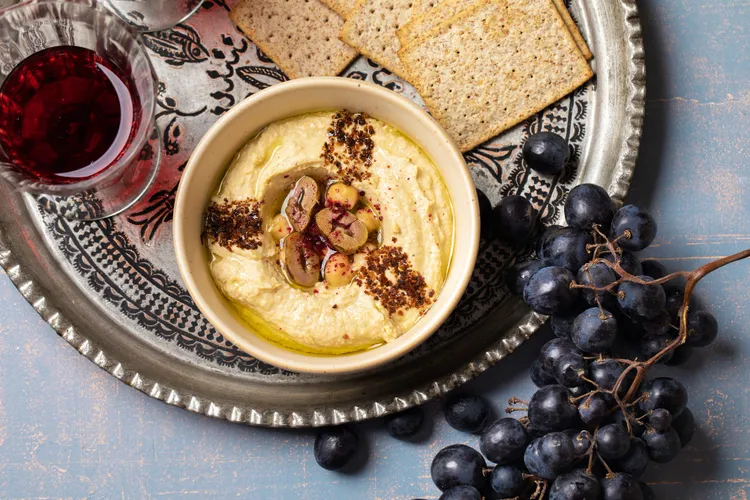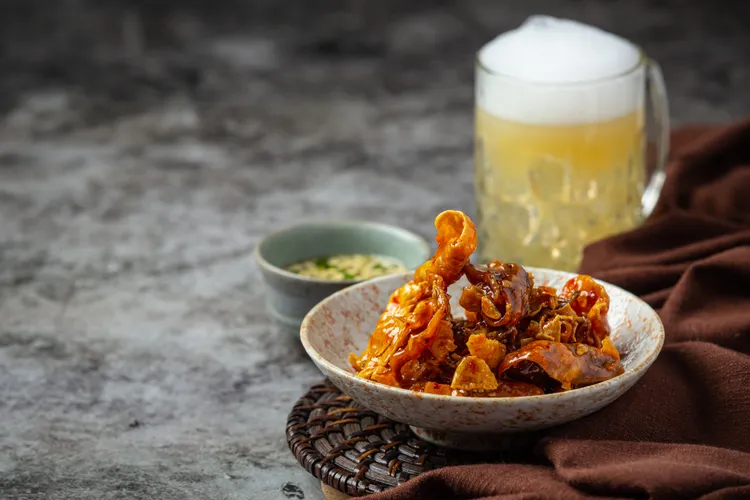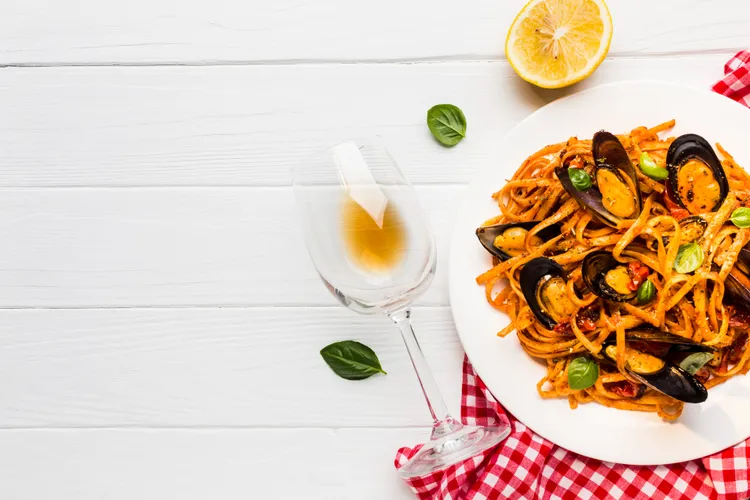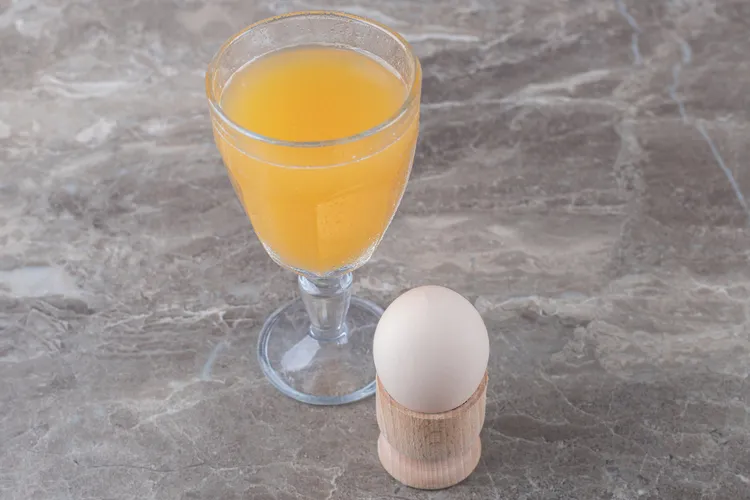10 Foods to Eat for Boosting Energy: Fuel Your Body for Peak Performance
Feeling sluggish, drained, or struggling to get through the day? Your diet plays a massive role in determining your energy levels. The right foods can provide sustained energy, improve focus, and keep you going strong without the crash of sugary snacks or caffeine overloads. In this guide, we’ll dive into 10 powerhouse foods that naturally boost energy, backed by science, and share practical tips on incorporating them into your daily routine. Let’s fuel up and feel unstoppable!

Why Food Matters for Energy
Before we jump into the list, let’s understand why food is critical for energy. Your body converts the calories in food into energy through metabolism. Carbohydrates, proteins, and fats are the primary macronutrients that fuel your cells, while vitamins, minerals, and other compounds support energy production at a cellular level. Eating nutrient-dense foods ensures a steady release of energy, avoiding spikes and crashes. Plus, hydration and timing (like eating balanced meals throughout the day) amplify these benefits.
Now, let’s explore the 10 foods that can supercharge your energy levels.
- Oats: The Slow-Burning Energy Champion
Why they boost energy: Oats are a complex carbohydrate packed with dietary fiber, particularly beta-glucan, which slows digestion and provides a steady release of glucose into your bloodstream. They’re also rich in B vitamins (like B1 and B5), which help convert food into energy.
Energy benefits:
- Sustained energy without blood sugar spikes.
- Magnesium in oats supports muscle and nerve function.
- Low glycemic index keeps you full and focused longer.
How to eat them:
- Start your day with a bowl of steel-cut or rolled oats topped with berries and nuts.
- Blend oats into smoothies for a creamy, energy-packed base.
- Make overnight oats with almond milk, chia seeds, and a drizzle of honey for a grab-and-go breakfast.
Pro tip: Avoid instant oats with added sugars, which can cause energy crashes. Opt for whole or minimally processed oats.
- Bananas: Nature’s Energy Bar
Why they boost energy: Bananas are a portable powerhouse of natural sugars (glucose, fructose, and sucrose), potassium, and vitamin B6. The sugars provide quick energy, while potassium prevents muscle cramps and supports hydration, crucial for sustained energy.
Energy benefits:
- Quick-digesting carbs for an instant boost.
- Potassium regulates fluid balance and nerve signals.
- Vitamin B6 aids in energy metabolism.
How to eat them:
- Grab a banana as a pre-workout snack or mid-afternoon pick-me-up.
- Slice into oatmeal or yogurt for a balanced meal.
- Blend into a smoothie with spinach, almond butter, and protein powder for a nutrient-packed drink.
Pro tip: Pair bananas with a protein or fat source (like peanut butter) to slow digestion and extend energy release.
- Eggs: The Protein-Packed Energizer
Why they boost energy: Eggs are a complete protein, containing all nine essential amino acids. They’re also rich in choline, which supports brain function, and B vitamins, which aid energy production. The protein and healthy fats in eggs provide lasting satiety.
Energy benefits:
- Stabilizes blood sugar for consistent energy.
- Choline enhances cognitive focus and alertness.
- Iron in egg yolks supports oxygen transport, reducing fatigue.
How to eat them:
- Boil eggs for a quick, portable snack.
- Make a veggie-packed omelet with spinach, tomatoes, and avocado.
- Scramble with whole-grain toast for a balanced breakfast.
Pro tip: Don’t skip the yolk - it contains most of the energy-boosting nutrients like choline and healthy fats.
- Sweet Potatoes: The Nutrient-Dense Carb
Why they boost energy: Sweet potatoes are a complex carbohydrate loaded with fiber, vitamin A (as beta-carotene), vitamin C, and manganese. These nutrients support energy production, immune function, and oxygen delivery to cells.
Energy benefits:
- Slow-release carbs for long-lasting energy.
- Manganese aids in metabolizing carbs and proteins.
- Antioxidants reduce inflammation, which can sap energy.
How to eat them:
- Roast sweet potato wedges with olive oil and spices for a side dish.
- Mash with cinnamon and a touch of maple syrup for a comforting snack.
- Slice into rounds and bake as a base for avocado or hummus toast.
Pro tip: Eat the skin for extra fiber and nutrients, but scrub it well first.
- Almonds: The Crunchy Energy Boost
Why they boost energy: Almonds are a nutrient-dense snack packed with healthy fats, protein, fiber, and magnesium. Magnesium is critical for over 300 enzymatic reactions, including those that produce ATP, your body’s energy currency.
Energy benefits:
- Balanced macronutrients prevent energy dips.
- Magnesium reduces muscle fatigue and supports energy production.
- Vitamin E protects cells from oxidative stress, preserving energy.
How to eat them:
- Grab a handful (about 1 ounce) as a mid-morning or afternoon snack.
- Spread almond butter on apple slices or whole-grain crackers.
- Toss chopped almonds into salads or oatmeal for added crunch.
Pro tip: Choose unsalted, raw, or lightly roasted almonds to avoid excess sodium or added oils.
- Spinach: The Green Energy Machine
Why they boost energy: Spinach is a leafy green bursting with iron, magnesium, and folate. Iron is essential for hemoglobin, which carries oxygen to your cells, while folate and magnesium support energy metabolism.
Energy benefits:
- Combats fatigue caused by iron deficiency.
- Nitrates in spinach improve blood flow and muscle efficiency.
- Antioxidants reduce inflammation, boosting overall vitality.
How to eat them:
- Add fresh spinach to smoothies - it blends seamlessly with fruit.
- Sauté with garlic and olive oil as a side dish.
- Toss into salads, soups, or pasta for a nutrient boost.
Pro tip: Pair spinach with vitamin C-rich foods (like citrus or bell peppers) to enhance iron absorption.
- Greek Yogurt: The Creamy Energy Source
Why they boost energy: Greek yogurt is high in protein, probiotics, and B vitamins. The protein provides sustained energy, while probiotics support gut health, which influences energy levels and mood.
Energy benefits:
- Protein slows digestion, preventing energy crashes.
- Probiotics improve nutrient absorption, optimizing energy production.
- Calcium and magnesium support muscle and nerve function.
How to eat them:
- Enjoy plain Greek yogurt with honey, berries, and granola.
- Use as a base for smoothies or dips instead of sour cream.
- Mix with chia seeds and let sit overnight for a pudding-like snack.
Pro tip: Choose unsweetened, full-fat or low-fat Greek yogurt to avoid added sugars.
- Salmon: The Omega-3 Energy Enhancer
Why they boost energy: Salmon is rich in omega-3 fatty acids, protein, and B vitamins (especially B12). Omega-3s reduce inflammation, which can drain energy, while B12 supports red blood cell production and neurological function.
Energy benefits:
- Omega-3s improve brain function and mood, reducing mental fatigue.
- High-quality protein provides long-lasting energy.
- Vitamin D in salmon supports immune health, preventing energy-zapping illnesses.
How to eat them:
- Grill or bake salmon with herbs and lemon for a hearty meal.
- Flake canned salmon into salads or mix with avocado for a quick spread.
- Add smoked salmon to scrambled eggs or whole-grain bagels.
Pro tip: Opt for wild-caught salmon when possible for higher omega-3 content and fewer contaminants.
- Quinoa: The Supergrain for Sustained Energy
Why they boost energy: Quinoa is a complete protein and complex carbohydrate, containing all nine essential amino acids. It’s also high in fiber, magnesium, and manganese, which support energy metabolism.
Energy benefits:
- Balanced carbs and protein for steady energy release.
- Magnesium aids in ATP production.
- Gluten-free and easy to digest, reducing energy-draining bloating.
How to eat them:
- Use quinoa as a base for grain bowls with veggies, protein, and a tahini drizzle.
- Cook with broth and spices for a flavorful side dish.
- Mix into salads or stuff into bell peppers for a nutritious meal.
Pro tip: Rinse quinoa before cooking to remove its bitter coating (saponins).
- Dark Chocolate: The Sweet Energy Treat
Why they boost energy: Dark chocolate (70% cocoa or higher) contains flavonoids, caffeine, and theobromine, which boost alertness and mood. It’s also rich in iron and magnesium, supporting energy production.
Energy benefits:
- Caffeine and theobromine provide a gentle energy lift without jitters.
- Flavonoids improve blood flow to the brain, enhancing focus.
- Small amounts satisfy cravings, preventing overeating of sugary snacks.
How to eat them:
- Enjoy 1–2 squares as a mid-afternoon treat.
- Melt and drizzle over fruit for a healthier dessert.
- Add cocoa nibs to trail mix or smoothies for a chocolatey crunch.
Pro tip: Stick to small portions (1 ounce) to avoid excess calories or sugar.
Bonus Tips for Maximizing Energy with Food
To make the most of these energy-boosting foods, follow these practical strategies:
- Stay Hydrated: Dehydration can cause fatigue. Drink water throughout the day and include hydrating foods like fruits and vegetables.
- Balance Your Plate: Combine complex carbs, lean protein, and healthy fats in each meal to stabilize blood sugar and sustain energy.
- Time Your Meals: Eat every 3-4 hours to maintain steady energy levels. Don’t skip breakfast - it jumpstarts your metabolism.
- Limit Processed Foods: Sugary snacks and refined carbs cause energy spikes and crashes. Stick to whole, nutrient-dense foods.
- Get Moving: Pair a healthy diet with regular exercise to enhance energy production and improve sleep, which further boosts vitality.
Sample Energy-Boosting Meal Plan
Here’s a one-day meal plan incorporating these foods to keep you energized:
- Breakfast: Oatmeal with sliced banana, almond butter, and a sprinkle of chia seeds.
- Morning Snack: Greek yogurt with mixed berries and a handful of almonds.
- Lunch: Quinoa salad with grilled salmon, spinach, cherry tomatoes, and olive oil dressing.
- Afternoon Snack: A square of dark chocolate with an apple.
- Dinner: Baked sweet potato topped with sautéed spinach, a poached egg, and avocado.
- Evening Snack (optional): A small smoothie with spinach, banana, and Greek yogurt.
Power Up with Food
Eating for energy doesn’t mean chugging energy drinks or relying on coffee. By incorporating these 10 nutrient-packed foods - oats, bananas, eggs, sweet potatoes, almonds, spinach, Greek yogurt, salmon, quinoa, and dark chocolate - you can fuel your body and mind for peak performance. Each food offers unique benefits, from steady energy release to improved focus and reduced fatigue. Pair them with smart habits like staying hydrated, eating balanced meals, and moving your body, and you’ll feel vibrant all day long.
Ready to boost your energy? Start by adding one or two of these foods to your diet today.









